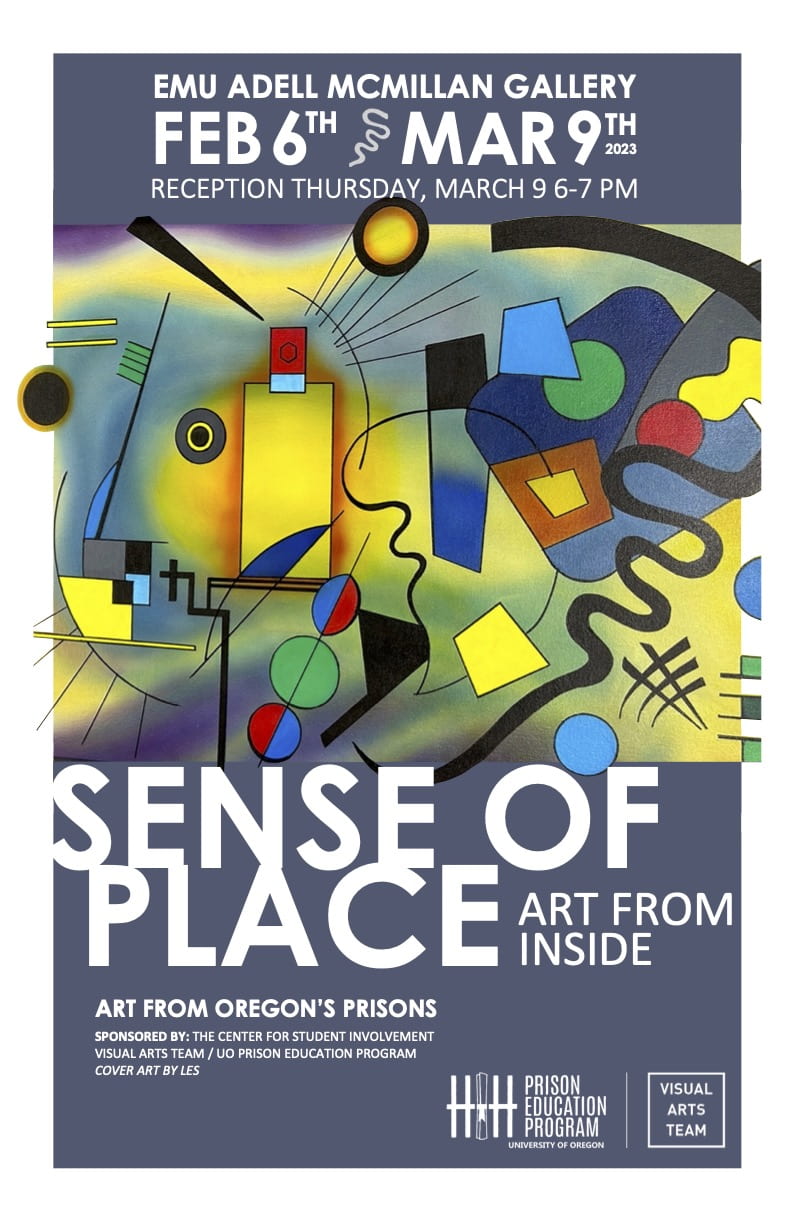On December 10th, the Oxford Consortium for Human Rights, a program centered on research and workshops regarding humanitarian aid, global conflict and peace building, hosted an event on the University of Oregon Campus to recognize important work being done at UO regarding human rights. Many PEP interns and past Inside students were present, along with PEP Director, Shaul Cohen, and Program Coordinator Katie Dwyer, who is also affiliated with the Oxford program and emceed the event.
The event began with UO President, Karl Scholtz, speaking about the significance of the Oxford Consortium for Human Rights. He also highlighted the tremendous impacts of the P.E.P. for incarcerated students, campus students, and the broader community in Oregon and beyond. Hugo Slim, the co-founder of the Oxford Consortium specifically spoke about Shaul’s contributions to prison education and how essential he has been in making education more accessible for Inside Students. Many of the students in the Oxford Program have taken Inside-Out classes.
Prior Inside-Out students also spoke at this event. Shawn McWeeney, a former Inside student, shared insights about how his time taking PEP courses both aided him while Inside and now, as he has re-entered society and is active in community service work. Beatrice, a former Outside student and current PEP Intern, discussed her positive experiences working with Shaul through being a PEP intern and a member of Carnegie Global Oregon Ethics Program that he also directs. Both students highlighted the importance of the PEP in their education, and its influence on them in terms of career pathways.
Sister Helen Prejean, the author of Dead Man Walking, shared her insights about how important education is as well as the high quality and immense quantity of work that Shaul does for prison education in Oregon, and how such work should be happening everywhere. Specifically, she stated “what Shaul and others have done in prison education is crucial, crucial for the redemption of human lives, the restoration of lives, and the developing of the potential that is in every human being which education brings forward.” Furthermore, Prejean emphasized the importance of education in developing personhood. You can view a recording of Sister Henlen’s Prejean’s contribution here.
To finish off the evening, the Oxford Consortium gave Shaul an award acknowledging his work with Human Rights. In his honor, they have created two “Shaul Cohen Fellowships” to support future participants in Consortium programs.
